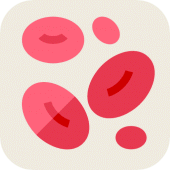
Blood Physiology 1.0.6 APKs
- Version: 1.0.6
- File size: 17.52MB
- Requires: Android 4.0+
- Package Name: hsdeveloper.bloodandbodyfluids
- Developer: HS Developers
- Updated Aug 26, 2024
- Price: Free
- Rate 4.70 stars – based on 33 reviews
What's New?
We
*Removed crashes and bugs
*Re Designed the app to make friendly user experience
*This is 1.0.6 Version
Blood Physiology App
significance of body fluids, compartments of body fluids –distribution of body fluids, composition of body fluids, measurement of body fluid volume, concentration of body fluids, maintenance of water balance, applied physiology.
properties of blood, composition of blood, functions of blood.
normal values, separation of plasma proteins, properties of plasma proteins, origin of plasma proteins, functions of plasma proteins, plasma pheresis, variations in plasma protein level.
normal value, morphology of red blood cells, properties of red blood cells, lifespan of red blood cells, fate of red blood cells, functions of red blood cells, variations in number of red blood cells, variations in size of red blood cells, variations in shape of red blood cells, variations in structure of red blood cells.
site of erythropoiesis, process of erythropoiesis, factors necessary for erythropoiesis.
normal hemoglobin content, functions of hemoglobin, structure of hemoglobin, types of normal hemoglobin, abnormal hemoglobin, abnormal hemoglobin derivatives, synthesis of hemoglobin, destruction of hemoglobin, iron metabolism.
determination of ESR, normal values of ESR, significance of determining ESR, variations of ESR, factors affecting ESR.
method of determination, significance of determining PCV, normal values of PCV, variations in PCV, blood indices, importance of blood indices, different blood indices, calculation of blood indices.
classification of anemia, signs and symptoms of anemia.
Definition, process of hemolysis, fragility test, conditions when hemolysis occurs, hemolysins.
classification, morphology of white blood cells, normal white blood cell count, variations in white blood cell count, lifespan of white blood cells, properties of white blood cells, leukopoiesis.
Definition and types of immunity, development and processing of lymphocytes, development of humoral immunity, natural killer cell, cytokines, immunization, immune deficiency diseases, allergy and immunological hypersensitivity reactions, autoimmune diseases.
structure and composition, normal count and variations, properties of platelets, functions of platelets, activators and inhibitors of platelets, development of platelets, lifespan and fate of platelets, applied physiology – platelet disorders.
stages of hemostasis
factors involved in blood clotting, sequence of clotting mechanism, blood clot, anticlotting mechanism in the body, anticoagulants, physical methods to prevent, procoagulants, tests for blood clotting, applied physiology.
abo blood groups, rh factor, other blood groups, importance of knowing blood group.
precautions, hazards of blood transfusion, blood substitutes, exchange transfusion, autologous blood transfusion.
Normal blood volume, variations in blood volume, measurement of blood volume, regulation of blood volume, applied physiology.
classification of reticuloendothelial cells, functions of reticuloendothelial system.
Structure of spleen, functions of spleen, applied physiology.
Lymphatic system, lymph nodes, lymph.
functions of tissue fluid, formation of tissue fluid, applied physiology – edema. Show More
This application contains following chapters with topics on blood physiology.
Body Fluids
significance of body fluids, compartments of body fluids –distribution of body fluids, composition of body fluids, measurement of body fluid volume, concentration of body fluids, maintenance of water balance, applied physiology.
Blood
properties of blood, composition of blood, functions of blood.
Plasma Proteins
normal values, separation of plasma proteins, properties of plasma proteins, origin of plasma proteins, functions of plasma proteins, plasma pheresis, variations in plasma protein level.
Red Blood Cells
normal value, morphology of red blood cells, properties of red blood cells, lifespan of red blood cells, fate of red blood cells, functions of red blood cells, variations in number of red blood cells, variations in size of red blood cells, variations in shape of red blood cells, variations in structure of red blood cells.
Erythropoiesis
site of erythropoiesis, process of erythropoiesis, factors necessary for erythropoiesis.
Hemoglobin and Iron Metabolism
normal hemoglobin content, functions of hemoglobin, structure of hemoglobin, types of normal hemoglobin, abnormal hemoglobin, abnormal hemoglobin derivatives, synthesis of hemoglobin, destruction of hemoglobin, iron metabolism.
Erythrocyte Sedimentation Rate
determination of ESR, normal values of ESR, significance of determining ESR, variations of ESR, factors affecting ESR.
Packed Cell Volume and Blood Indices
method of determination, significance of determining PCV, normal values of PCV, variations in PCV, blood indices, importance of blood indices, different blood indices, calculation of blood indices.
Anemia
classification of anemia, signs and symptoms of anemia.
Hemolysis and Fragility of Red Blood Cells
Definition, process of hemolysis, fragility test, conditions when hemolysis occurs, hemolysins.
White Blood Cells
classification, morphology of white blood cells, normal white blood cell count, variations in white blood cell count, lifespan of white blood cells, properties of white blood cells, leukopoiesis.
Immunity
Definition and types of immunity, development and processing of lymphocytes, development of humoral immunity, natural killer cell, cytokines, immunization, immune deficiency diseases, allergy and immunological hypersensitivity reactions, autoimmune diseases.
Platelets
structure and composition, normal count and variations, properties of platelets, functions of platelets, activators and inhibitors of platelets, development of platelets, lifespan and fate of platelets, applied physiology – platelet disorders.
Hemostasis
stages of hemostasis
Coagulation of Blood
factors involved in blood clotting, sequence of clotting mechanism, blood clot, anticlotting mechanism in the body, anticoagulants, physical methods to prevent, procoagulants, tests for blood clotting, applied physiology.
Blood Groups
abo blood groups, rh factor, other blood groups, importance of knowing blood group.
Blood Transfusion
precautions, hazards of blood transfusion, blood substitutes, exchange transfusion, autologous blood transfusion.
Blood Volume
Normal blood volume, variations in blood volume, measurement of blood volume, regulation of blood volume, applied physiology.
Reticuloendothelial System and Tissue Macrophage
classification of reticuloendothelial cells, functions of reticuloendothelial system.
Spleen
Structure of spleen, functions of spleen, applied physiology.
Lymphatic System and Lymph
Lymphatic system, lymph nodes, lymph.
Tissue Fluid and Edema
functions of tissue fluid, formation of tissue fluid, applied physiology – edema.
Popular
Top Education Apps
